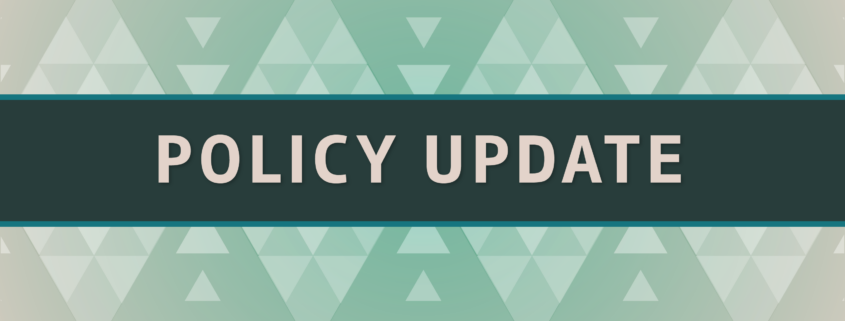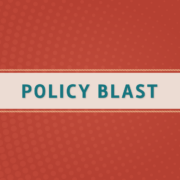Coalition of Health Organizations Request Congress Increase Funding for Key IHS Resources to Address Native American Health Needs
On May 20, 2024, the American Indian/Alaska Native (AI/AN) Health Partners, a coalition of health organizations dedicated to improving health care for American Indians and Alaska Natives, sent letters to House and Senate Interior, Environment, and Related Agencies Subcommittee leadership regarding the fiscal year (FY) 2025 appropriations. In these letters, AI/AN Health Partners urged that House and Senate appropriators address workforce, housing, and equipment needs.
Letter Highlights:
- $18,000,000 requested for increases in funding for the Indian Health Professions account for FY 2025 to make a meaningful dent in high vacancy rate across the Indian Health System.
- Requests the Appropriations Committee make Indian Health Service loan repayments and scholarships tax free. This is in line with the National Health Service Corps and other federal loan repayment programs and would enable the Service to fund 218 more providers without increasing the Indian Health Professional account.
- $11 million requested for new and replacement staff quarters, which is key for the Indian Health Service and Tribes to recruit and retain health care personnel.
- $42,862,000 requested for medical and diagnostic equipment. The Indian health system manages approximately 90,000 devices consisting of laboratory, medical imaging, patient monitoring, pharmacy, and other biomedical, diagnostic, and patient equipment.
- $435 million requested to modernize the electronic health records system and ultimately replace IHS’s current medical, health, and billing records systems.
Full Text:
Dear Chairman Simpson and Ranking Member Pingree:
The AI/AN Health Partners is a coalition of health organizations dedicated to improving health care for American Indians and Alaska Natives (AI/ANs). AI/ANs face substantial health disparities, and higher mortality and morbidity rates than the general population. The Indian Health Service (IHS) is critical to how they access health care. However, the IHS must have sufficient resources to meet its mission to raise the physical, mental, social, and spiritual health of American Indians and Alaska Natives to the highest level.
Maintaining a consistent and constant level of health care funding for Native Americans is vital to ensuring that the Indian Health Service, tribal, and urban Indian health care (I/T/U) programs can provide uninterrupted care. We thank you for recognizing the importance of the health care needs of Native Americans with your support of advanced appropriations for the IHS for FY 2025.
However, while the advanced appropriations provide stability for services, they do not allow for program growth which is especially important since the IHS estimates the nation’s Native American population will grow by 1.8 percent in 2026.
A long-standing priority for our organizations has been to ensure that the services provided by the I/T/U health care programs be maintained to meet the current and future AI/AN population needs. As you work to finalize FY 2025 appropriations for the IHS, we urge you to include several significant budget increases that we believe will dramatically improve the delivery of health care to AI/ANs.
Health Professions Workforce needs
The Indian Health Professions account provides loan repayment, the Service’s best recruitment tool, for providers who work in Indian Country. It also funds scholarships for Native American health care students. Currently, the IHS lacks sufficient funding to meet its needs. There are over 1,330 vacancies for health care professionals within IHS including: physicians, dentists, nurses, pharmacists, physician assistants, and nurse practitioners. Additionally, the IHS reported in its FY 2025 budget justification that it had 455 loan repayment applications from 85 behavioral health providers, 29 dentists, 52 NPs/PAs and 166 nurses that it could not fund. The inability to fund these applicants is a significant challenge for the recruitment efforts of the Service. For FY 2025, the Administration is requesting $81,252,000 for the Indian Health Professions account. This is a $684,000 increase that will fail to make any meaningful dent in the backlog of loan repayment applicants or the high vacancy rate across the system. It has been estimated that it would take approximately $18,000,000 to close this gap. We therefore request $18,000,000 for the Indian Health Professions account for FY 2025.
Making IHS loan repayment and scholarships tax free
We appreciate that the Committee is under pressure to cut back federal funding for all programs. Therefore, we urge the Committee to authorize, in its FY 2025 Interior Appropriations bill, legislation to provide a tax exemption for the Indian Health Service Health Professions Scholarship and Loan Repayment Programs. The IHS is currently paying more than $9 million in taxes for these programs. If the loan repayment and scholarship programs were made tax-free, it would enable the Service to fund 218 more providers without increasing the Indian Health Professions account. This is in line with the National Health Service Corps and other federal loan repayment programs that all enjoy tax-free status.
Staff quarters
Decent staff housing is also key for the IHS and tribes to be able to recruit health care personnel. Many of the 2,700 staff quarters in the IHS health delivery system are more than 40 years old and in need of major renovation or total replacement. Additionally, in several locations, the amount of housing units is insufficient. Staff quarters, especially in remote areas, is necessary for attracting and keeping health care providers in Indian Country.
We were pleased to see that, for FY 2025, the Administration has requested $11 million for new and replacement staff quarters. We urge the Committee to fund this request and if possible, to increase it.
Medical and diagnostic equipment
Health care professionals need modern equipment to make accurate clinical diagnoses and prescribe effective medical treatments. The I/T/U health programs manage approximately 90,000 devices consisting of laboratory, medical imaging, patient monitoring, pharmacy, and other biomedical, diagnostic, and patient equipment. However, many of these facilities are using outdated equipment like analog mammography machines. In some cases, they are using equipment that is no longer manufactured. Today’s medical devices/systems have an average life expectancy of approximately six to eight years. The IHS has calculated for several years that to replace the equipment at the end of its six to eight-year life would require approximately $100 million per year. For FY 2025, the Administration has requested $33,874,000. This is an increase of only $1,276,000 over the current funding of $32,598,000 which was the same amount appropriated in FY 2023 and FY 2024. We urge the Committee for FY 2025 to fund the Indian Health Facilities equipment account at the House-approved FY 2024 amount of at least $42,862,000.
Electronic Health Records
Being able to have a modern electronic health record (EHR) system is necessary to enable the IHS and tribal health professionals to provide accurate and vital health care for patients. The IHS uses its EHR for all aspects of patient care, including maintaining patient records, prescriptions, care referrals, and billing insurance providers that reimburse the Service for over $1 billion annually. We urge the Committee to support the Administration’s request of $435 million that provides an additional $213 million to modernize its system and ultimately replace IHS’s current medical, health, and billing records systems.
Thank you for considering our requests. We look forward to working with you to improve health care for American Indians and Alaska Natives.
Sincerely yours,
American Academy of Pediatrics
American Association of Colleges of Nursing
American Association of Colleges of Osteopathic Medicine
American Dental Association
American Dental Education Association
American Medical Association
Association of Diabetes Care & Education Specialists
Commissioned Officers Association of the USPHS
International Certification & Reciprocity Consortium







